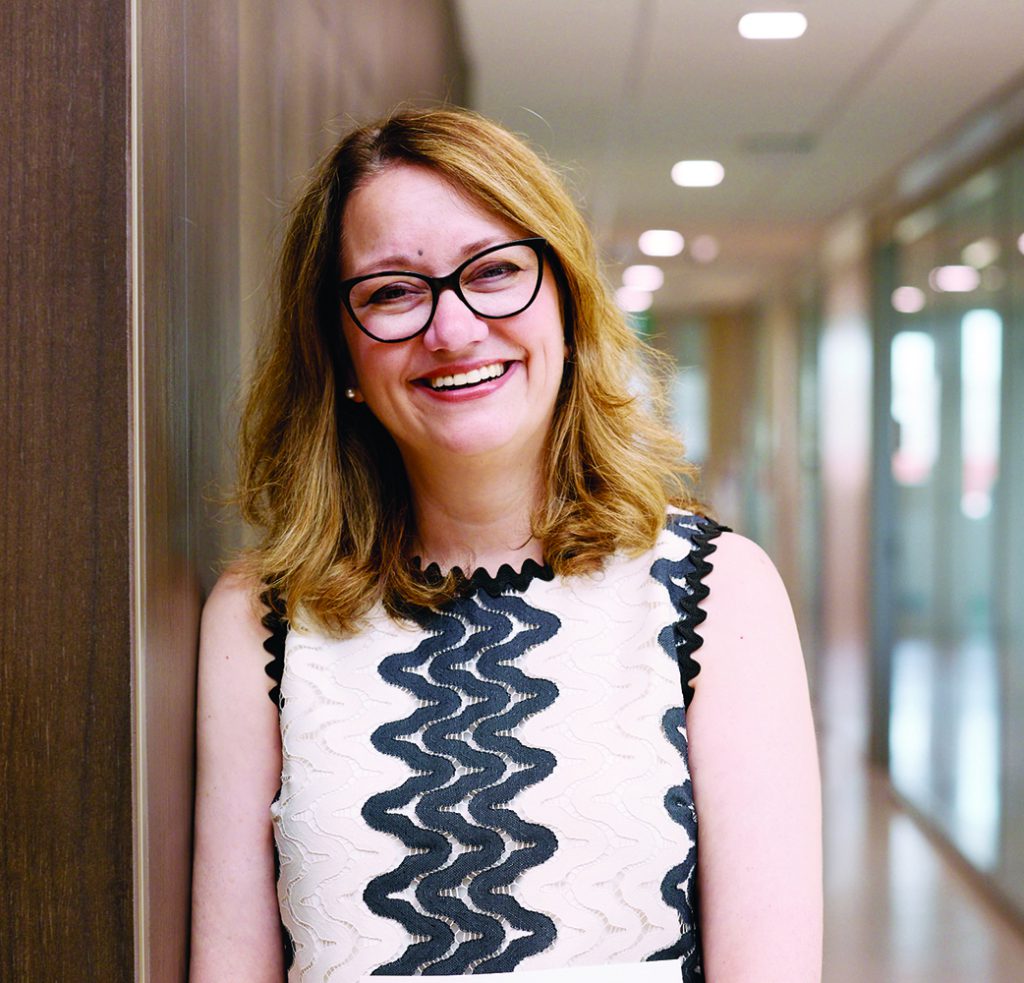
In 2024, when UM alum Sarah Forgie [B.Sc.(Med.)/95, MD/95] joined the University of Saskatchewan (USask) as dean of the College of Medicine, she immediately felt the weight of her new position.
“I had media calling and asking, ‘How are you going to solve the health-care crisis?’” recalls Forgie, a pediatric infectious disease specialist.
Forgie had previously held leadership roles at the University of Alberta (U of A), including department head of pediatrics, and national roles in her field. Her many accomplishments included establishing a children’s hospital infection prevention and control program.
She was well aware of the challenges in Saskatchewan, from strained rural services to long wait times for care. But she arrived with an upbeat perspective on quality improvement.
She believes in applying an “academic lens” to everything in the health system – that is, scientifically studying it to understand what works, what doesn’t, and how to make it better.
She credits her UM education for that outlook. “There always seemed to be a research piece attached to the clinical piece, and that’s something I’ve carried with me.”
Forgie spent the first seven years of her life in the northern community of Lynn Lake, Man., where her South Indian mother and British father were physicians.
The family moved to Winnipeg, and Forgie went on to earn a science degree at the University of Toronto. She returned for medical studies at UM, where she was elected senior stick of her class and witnessed some creative teaching approaches.
One day, a neuroscientist who was teaching her class suddenly started jumping up and down. “He was shouting, ‘The floor is on fire!’ ‘The floor is on fire!’ Then he said, ‘Did you notice I started jumping before I started yelling?’”
He was dramatizing the spinal reflex to pull away from pain before you realize what’s happening, Forgie says. She never forgot that moment.
Later, while teaching medical students at U of A, she grew so interested in innovative educational methods that she completed a master’s degree in education.
She experimented with using images, stories and music as “memory hangers” for learners. She rewrote the lyrics to the song Psycho Killer to teach about strep throat, accompanying herself on the ukulele.
Another time, she played a recording of the 1959 jazz instrumental Take Five to aurally illustrate a story about abdominal abscesses. The saxophone represented the “sly” Bacteroides fragilis, which has special virulence factors.
“I’m dressed up like a beatnik poet as I’m doing this,” Forgie recalls.
True to her “academic lens” philosophy, Forgie then studied how well the information had taken hold. She found that 98 per cent of students who got the Take Five presentation retained the key concepts, versus about 50 per cent of students who heard a lecture. She published the findings in the journal Academic Medicine.
Today, at the helm of the USask medical college, Forgie says her priorities include building strong connections with practising physicians, creating new programs, promoting research, and graduating more Indigenous and rural-oriented physicians who want to stay in Saskatchewan.
“My biggest hope is that we continue to look at our health-care system through research, which is what universities do really well.”
BY ALISON MAYES
